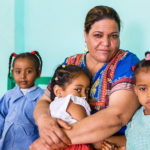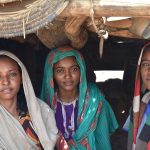There are three main explanations as to why female labor force participation, globally, remains low: (1) women’s high opportunity cost of time (2) weak labor demand and (3) restrictive gender norms. The research team will test aspects of all three constraints on FLFP in a low-income context in Egypt. They will specifically answer the following…
Education
Entrepreneurship Education and Teacher Training in Rwanda
Youth account for 60% of Africa’s unemployed. In Rwanda, 72% of employed youth work for family firms or are self-employed (African Economic Outlook 2016). These outcomes suggest that schools are failing to develop the skills required to enter formal sector jobs or launch and grow small firms. In response, Rwanda is one of ten African…
Advancing Data Capacity for Policy Innovation in Sudan
The objective of the Sudan Labor Market Panel Survey (SLMPS) 2019 is to facilitate better understandings of labor market dynamics and outcomes in Sudan. Our goal with the SLMPS 2019 is to collect high-quality and reliable data sufficient for indepth, multi-dimensional analyses of economic and labor market issues in Sudan. The need for high quality…
Transitions to Adulthood
Increasing schooling, delaying marriage and childbearing, and increasing labour market participation of young women are important policy objectives in Senegal as in many developing countries. These outcomes are tightly linked. Early childbearing may inhibit women’s ability to enter the labour force. Greater schooling and enhanced skill development may substantially mitigate these negative outcomes by increasing…



